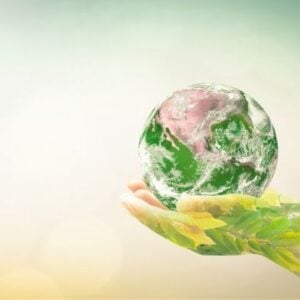The European Union (EU) and the Philippines launched the Circular Solutions Innovation Challenge in Pasig City on 20 August 2025 to accelerate the country’s transition to a green, circular, and inclusive economy. This initiative is part of the EU-Philippines Green Economy Partnership, funded by the EU and led by the Department of Environment and Natural Resources (DENR) and the Department of the Interior and Local Government (DILG), with implementation support from the United Nations Development Programme (UNDP). The programme aims to support innovative solutions addressing environmental challenges at the local level, create green jobs, and promote circular economy practices across the Philippines.
Dr. Marco Gemmer, Head of the Cooperation Section at the EU Delegation to the Philippines, emphasized that the Challenge leverages the knowledge, creativity, and funding of micro, small, and medium enterprises (MSMEs) to implement impactful solutions. Assistant Secretary for International Relations Lilian De Leon of DILG highlighted the importance of collaborations among the EU, local government units (LGUs), civil society, and the business sector, underscoring that sustainability must be practiced in local communities to achieve meaningful results.
The first ten participating LGUs—Baguio, Pasig, Quezon City, Caloocan, Iloilo, Ormoc, Davao, Puerto Princesa, the Island Garden City of Samal, and Del Carmen—have developed Circular Economy portfolios to identify gaps and opportunities where innovation can make a measurable difference. Priority areas include plastic waste reduction, organic waste management, and sustainable tourism. The Innovation Challenge provides funding and implementation support of up to PHP 2,280,000 (€35,000) per selected innovation, focusing on solutions that are technically sound, financially viable, inclusive, and capable of scaling or replication.
The Challenge reinforces the role of local actors as key enablers of circular transformation, encouraging partnerships and co-creation of context-specific solutions. Assistant Director Maria Dorica Naz-Hipe of the DENR’s Environmental Management Bureau highlighted that collaboration between national and local governments, communities, and the private sector produces more lasting and impactful results.
This initiative builds on previous funding mechanisms under the EU-PH Green Economy Partnership, including Community Grants and Circular Economy Education & Behavioral Change Grants launched in April 2025. These programs empower civil society organizations to drive awareness, inclusive actions, and behavior change in support of circular transition efforts. Dr. Selva Ramachandran, UNDP Philippines Resident Representative, emphasized the importance of a portfolio approach that combines policy, green business models, and community innovation to ensure sustainable, locally owned, and integrated solutions. Together, these initiatives form a comprehensive ecosystem that enables local actors to lead circular transformation and resource innovation where it matters most.







